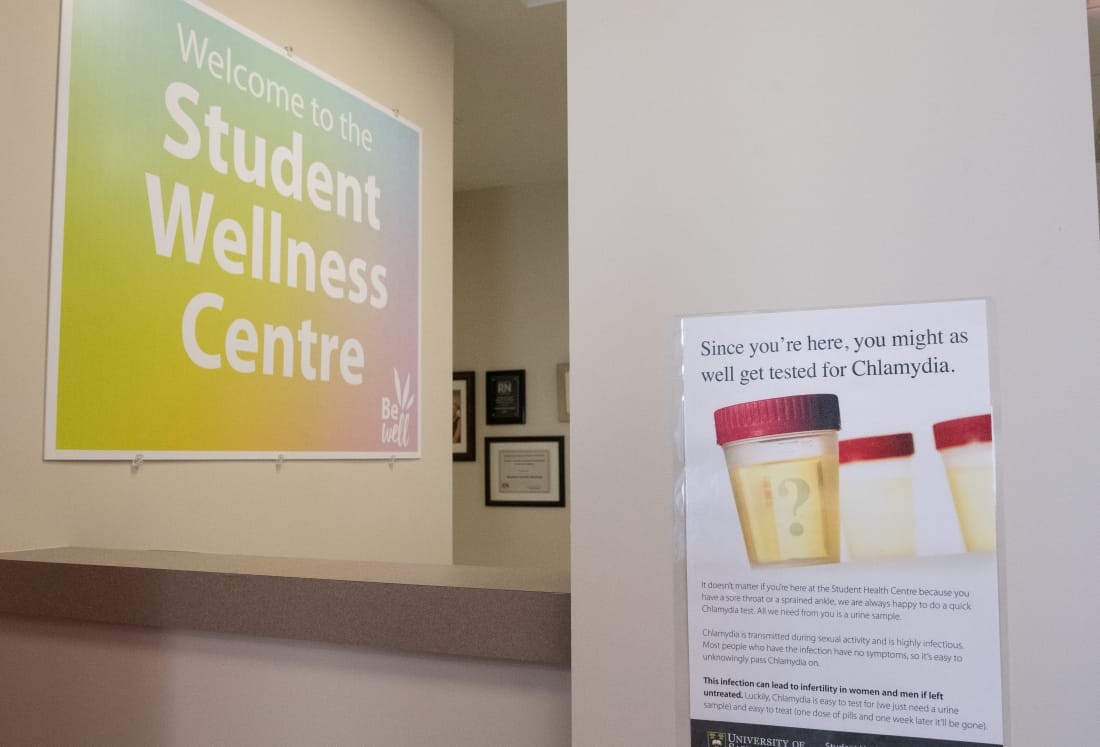
While the temperatures are beginning to drop, the cases of sexually transmitted infections are still on the rise in the province. The Saskatchewan Health Authority declared an outbreak of syphilis and HIV this past June, a recent example that follows the rising rates of other infections over the past 13 years.
When was the last time you got tested?
STIs are an insidious problem that continues to grow, despite the best efforts of health care officials. Many of these infections — like chlamydia and gonorrhea — can rage on without any outward symptoms while others like syphilis and HIV can have very ambiguous symptoms that often mimic other illnesses.
Sex — and the infections it can bring — still carries with it a heavy stigma and people are still often uncomfortable talking about their bodies, the sexual activities they engage in and the status of their overall sexual health. This leads to people being undereducated about basic biology, not understanding the risk of exposure or simply being too anxious to seek help after an unprotected sex act.
There are movements within Saskatchewan to normalize STIs and educate the public about the microbes that are behind these infections.
Syphilis, chlamydia and gonorrhea are all caused by bacteria and can be cleared up with a course of antibiotics. However, there have been reports that some strains of gonorrhea may have developed resistance to the common antimicrobial treatments — leading to fears of a potentially untreatable superbug circulating through populations.
What happens if these infections are left untreated? While chlamydia and gonorrhea may not kill you, they can lead to inflammation of internal organs, which can cause sterility and significant pain.
Syphilis, on the other hand, has three stages of active disease and a middle period where you can be symptom free for decades. When the final stage kicks in, it leads to systemic organ damage and neurosyphilis — the cause for many historical cases of “madness.” Syphilis will kill you if you don’t treat it and it won’t be a pleasant way to go.
HIV, HPV and herpes are all chronic viral infections that can be passed on to your partner. There are several ways to protect yourself from these three Hs. The HPV vaccine gives protection against nine strains of the virus that can cause cervical and penile cancers. In fact, the vaccine is so effective, we may be able to one day eliminate these types of cancers. Many antiviral medications can make HIV and herpes infections harder to transmit during sexual encounters.
In the past few years, there has been better access to a prophylactic HIV drug known as PrEP. If taken daily, it can be 99 per cent effective against preventing an HIV infection. The drug is a major step forward for sexual health initiatives.
Still, the number one way to prevent sexually transmitted infections is by using barrier devices, yet more and more people are opting out of using condoms. For example, studies have shown that PrEP users are engaging in unprotected sex more frequently — a troubling finding. While the threat of HIV infection decreases significantly, the risk of infection from gonorrhea, chlamydia, syphilis and herpes stays the same.
Unprotected sex happens, but the best thing you can do is get tested afterwards. The Student Wellness Centre often conducts a campus wide blitz to increase awareness of STIs and increase access to testing. All you have to do is pee in a cup and hand it back in a nice discrete paper bag to the volunteers. You’re all covered, right?
Well, not exactly. This kind of test is great for detecting really common STIs like chlamydia and gonorrhea, but it can’t tell you if you’ve come in contact with something like syphilis or HIV. You are going to need a blood test for that.
If you are sexually active, it’s critical that you get tested frequently. Sex is an important and rewarding activity in our lives so make sure you are keeping your sexual health a priority for yourself and your partners.
—
Erin Matthews/ Opinions Editor
Photo: Victoria Becker/ Photo Editor
Leave a Reply